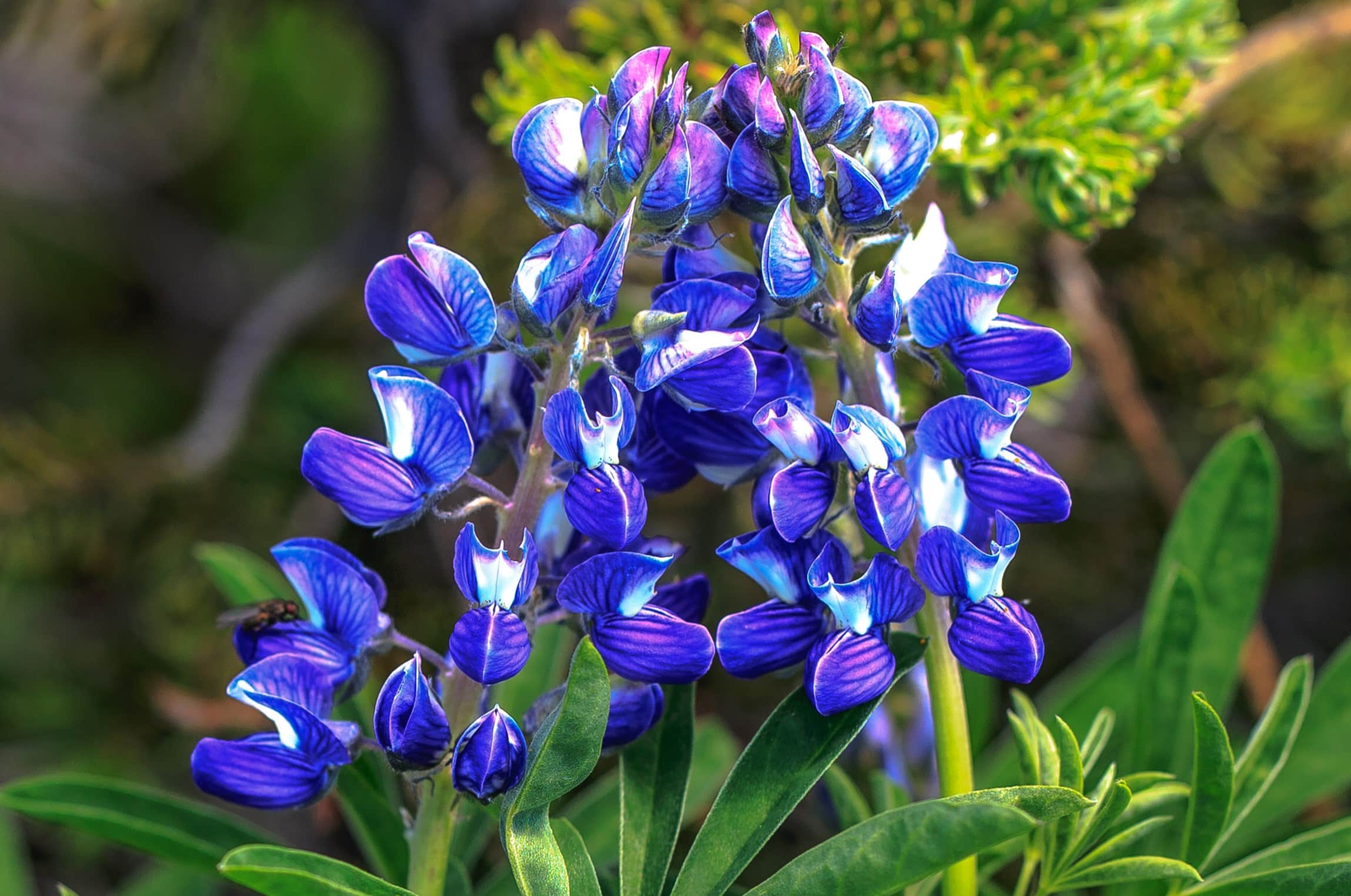
Arctic lupine, scientifically known as Lupinus arcticus, is a spectacular flowering plant that thrives in the harsh and unforgiving environments of the Arctic tundra. This resilient and captivating plant has adapted to survive in extreme conditions, showcasing its beauty amidst the rugged terrain. The Arctic lupine's vibrant blooms add a pop of color to the otherwise stark landscape, making it a remarkable sight to behold. With its ability to thrive in such challenging surroundings, the Arctic lupine has become a symbol of resilience and tenacity in the natural world.
In this article, we will delve into 11 fascinating facts about the Arctic lupine, shedding light on its unique characteristics, ecological significance, and cultural relevance. From its striking appearance to its ecological role, there is much to discover about this remarkable plant. Join us on a journey through the Arctic tundra as we explore the captivating world of the Arctic lupine and unravel the secrets held within its delicate petals.
Key Takeaways:
- Arctic lupine is a resilient plant that survives in the harsh Arctic tundra, providing food for wildlife, enhancing the landscape, and symbolizing determination and natural beauty.
- The vibrant flowers of Arctic lupine attract pollinators, and its ability to thrive in low-nutrient soils showcases its remarkable adaptability and resilience in challenging environments.
Arctic Lupine Can Survive in Extreme Conditions
Arctic lupine is a hardy plant that has adapted to survive in the challenging environment of the Arctic tundra. Its ability to endure extreme cold and harsh winds makes it a remarkable example of nature's resilience.
The Flowers Come in Various Shades
The flowers of the Arctic lupine bloom in a spectrum of colors, including vibrant shades of blue, purple, and sometimes pink. This dazzling display of colors adds a striking contrast to the stark Arctic landscape.
It Plays a Vital Role in Ecosystems
Arctic lupine plays a crucial role in the Arctic ecosystem by enriching the soil with nitrogen through a process called nitrogen fixation. This process enhances the fertility of the soil, benefiting other plant species in the region.
It Provides Food for Wildlife
The seeds of the Arctic lupine serve as a valuable food source for a variety of wildlife, including birds and small mammals. Its presence contributes to the overall biodiversity of the Arctic tundra.
Arctic Lupine Has Medicinal Properties
Traditionally, Arctic lupine has been used by indigenous communities for its medicinal properties. It is believed to have therapeutic benefits and has been used in herbal remedies for various ailments.
It Endures the Midnight Sun
In the Arctic, the phenomenon of the midnight sun results in 24 hours of daylight during the summer months. Arctic lupine has adapted to thrive in this unique environment, leveraging the extended sunlight for its growth and development.
It Symbolizes Resilience and Determination
The ability of Arctic lupine to flourish in one of the harshest environments on Earth serves as a powerful symbol of resilience and determination, inspiring admiration and awe.
It Enhances the Aesthetic Appeal of the Tundra
The presence of Arctic lupine adds a touch of natural beauty to the expansive and rugged Arctic landscape, creating picturesque scenes that captivate the imagination.
It Attracts Pollinators
The vibrant flowers of the Arctic lupine attract pollinators such as bees and butterflies, playing a vital role in the pollination process and contributing to the overall health of the ecosystem.
It Thrives in Low-Nutrient Soils
Arctic lupine has evolved to thrive in soils with low nutrient levels, showcasing its remarkable ability to adapt and thrive in challenging environmental conditions.
It Is a Source of Inspiration for Artists and Writers
The striking beauty and resilience of the Arctic lupine have inspired artists, writers, and poets, who have incorporated its imagery into their works as a symbol of endurance and natural splendor.
Arctic lupine, with its breathtaking blooms and remarkable adaptability, continues to captivate the hearts and minds of all who encounter this extraordinary plant in the Arctic tundra. Its ability to thrive in such extreme conditions serves as a testament to the indomitable spirit of nature.
Conclusion
In conclusion, the Arctic lupine is a fascinating and resilient plant that thrives in harsh environments, contributing to the delicate balance of the Arctic ecosystem. Its striking blue flowers, nitrogen-fixing abilities, and crucial role in supporting wildlife make it a remarkable species worthy of admiration and preservation. As we continue to explore and appreciate the wonders of the natural world, the Arctic lupine serves as a poignant reminder of the beauty and adaptability found in even the most extreme landscapes.
FAQs
What are the main features of the Arctic lupine?
The Arctic lupine, also known as Lupinus arcticus, is characterized by its vibrant blue flowers, palmate leaves, and upright growth habit. This hardy perennial plant is well-adapted to cold climates and often forms dense stands in Arctic and alpine regions.
How does the Arctic lupine contribute to its ecosystem?
The Arctic lupine plays a crucial role in its ecosystem by enriching the soil through nitrogen fixation, providing food for various wildlife species, and adding vibrant color to the landscape. Additionally, its ability to thrive in challenging environments makes it an important indicator of ecosystem health and resilience.
Was this page helpful?
Our commitment to delivering trustworthy and engaging content is at the heart of what we do. Each fact on our site is contributed by real users like you, bringing a wealth of diverse insights and information. To ensure the highest standards of accuracy and reliability, our dedicated editors meticulously review each submission. This process guarantees that the facts we share are not only fascinating but also credible. Trust in our commitment to quality and authenticity as you explore and learn with us.
